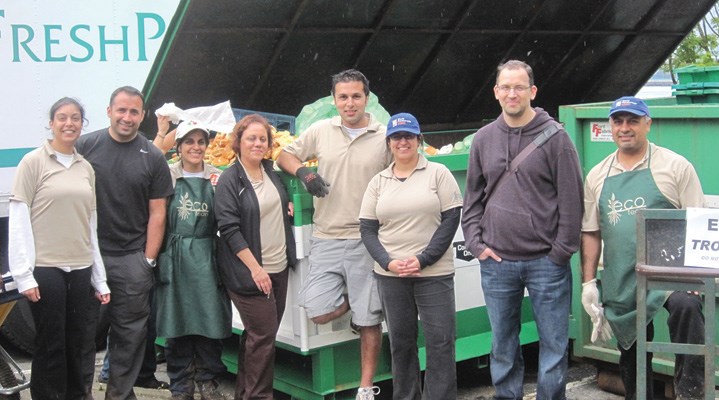The city plans to roll out a trailer that makes hosting environmentally conscious festivals easier by next summer.
City engineer Peter Judd is mulling lower event permit fees for festivals that recycle, compost and provide secure bicycle parking.
Its welcome news for Shafin Virji who has worked to make the World Partnership and Ismaili walks greener.
Obviously, were doing a charity event and therere a lot of questions that come up saying why are we spending so much [$3,000 to buy compostable dishes, cutlery, napkins and cups] and I have to convince them all the time that this is the right thing to do, Virji said. So if there is an incentive there its a much easier sell.
Hed like the city to require festivals to use compostable dishes and utensils.
The World Partnership Walk, sponsored by the Aga Khan Foundation, raises funds to alleviate global poverty. Septembers annual Ismaili Walk will raise money for the Heart and Stroke Foundation of B.C. and Yukon.
The organizers of the walks started reducing waste three years ago. They found a certified facility to compost and recycle waste, distributed compostable dishes, hired a company to haul redirected waste, discouraged unnecessary food packaging, set up bins and signs for garbage, recycling and compost and staffed the stations with volunteers.
The walks redirect about 60 per cent of their waste from the landfill, and Virji estimates that amount could be 80 per cent if people chose the appropriate bins. Non-compostable dishes, cups and utensils from the concession at Lumbermans Arch add to the walks trash.
Virji wants the city to ban the sale of water bottles, Styrofoam and non-recyclable utensils in city parks during events and require all festivals to compost and recycle 50 per cent of their waste.
Organizers of the two walks pay $1,500 to have recyclables, compost and cardboard hauled away. Virji wants the city to include bins and transport services as part of the cost of event permits.
The city has a built a trailer that includes bike racks, water and recycling stations that would be need to be monitored by event volunteers. Judd said the city is about to hire a temporary employee to determine how to make the trailer available. Carting compostables away could be a possibility.
Judd said the city could require compostable containers and provide secure bike parking, or it could charge organizers that dont provide these higher event permit fees.
In the same way United We Can binners were employed during the Olympics, Judd said social organizations could be involved in stepped up waste diversion.
Vendors at the city-hosted Summer Live in Stanley Park were prohibited from selling bottled water but sold cans of pop.
You cant get pop out of the water system, Judd said. Weve spent, like, $600 million building a state-of-the-art filtration plant at the Seymour Reservoir that filters most of the water that Vancouverites drink now. Its absolutely top-quality water, very likely better than what theyre buying in bottles and we simply want people to get that message.
This was the first year the city asked about the World Partnership Walks waste policy and provided organizers with garbage and recycling bins. But Virji said city sanitation workers loaded both types of bins into one truck and said they dont do recycling.
Judd suspects the recycling bins were contaminated with garbage, but Virji said that wasnt the case.
Virji said the city should charge charity events that go green even lower permit fees.
Twitter: @Cheryl_Rossi



